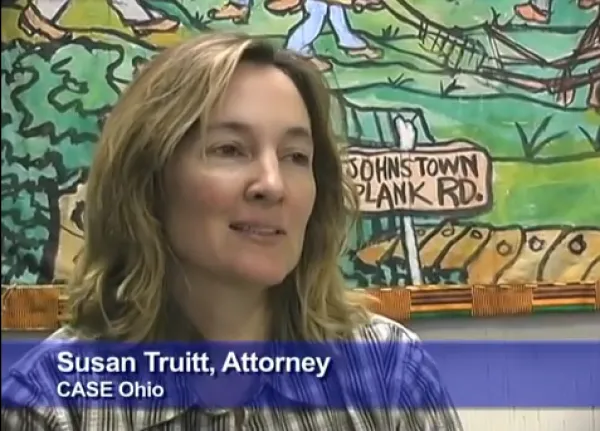“...we should be remembered for the things we do. The things we do are the most important things of all. They are more important than what we say or what we look like. The things we do outlast our mortality. The things we do are like monuments that people build to honor heroes after they've died. They're like the pyramids that the Egyptians built to honor the Pharaohs. Only instead of being made out of stone, they're made out of the memories people have of you. That's why your deeds are like your monuments. Built with memories instead of with stone.”
― R.J. Palacio
On Sept 18, Susan Truitt died after a long battle with breast cancer. Susan would want to be remembered for raising three wonderful children Her two sons have graduated from college, and her daughter is a high school student. After losing her job due partly to her political activism, she turned to teaching where she impacted the lives of many students, as demonstrated by the comments on her Facebook page. William wrote “She was the coolest teacher n a good friend when i gave up on myself she didnt she was the reason i finished school. She loved to helping people ill never forget how i came this far RIP miss truitt”
Susan was an equestrian enthusiast, competing in dressage events. She was happiest when she could ride.
Susan was a political activist as well. Susan became concerned about the potential for stolen elections well before many of us recognized the danger. She was one of the founding members of Citizens Alliance for Secure Elections (CASE Ohio), an organization that was created before rather than after the 2004 Presidential election. Susan was one of a handful of people who anticipated the coming disaster. Susan and CASE fought to keep paperless voting out of Ohio, and later succeeded with the leadership of state Senator Teresa Fedor in passing legislation requiring a paper audit trail.
After the 2004 Presidential election was stolen from John Kerry by George Bush/Karl Rove, CASE and the Columbus Free Press (freepress.org) organized public hearings. These public hearings allowed the public to testify about the long lines and other methods of disenfranchisement used to manipulate the vote. Susan, CASE and the Free Press eventually discovered that the county level vote count was re-routed to a Republican controlled computer server in Tennessee. The IT person for the State of Ohio was sent home at around 9 PM. The election results began to differ from the exit polls at about 11:30 PM, when Secretary of State Blackwell allowed the Republican Party to manipulate the electronic vote count.
The Free Press and CASE Ohio organized a rally at the Statehouse in Columbus early in December 2004. Susan Truitt was one of four speakers, along with Bob Fitrakis, Greg Palast, and Lynn Landis. Susan gave a dynamic speech as she understood through her work with CASE that the 2004 Presidential election was stolen. Shortly thereafter I met Susan, joined CASE, and did my best to support Susan and CASE in the effort to expose and prevent electronic vote fraud.
Susan and three other attorneys who challenged the election faced stiff sanctions from Ohio's Republican Attorney General James Petro. “Petro's suit is widely viewed as an attempt at revenge and intimidation against the grassroots movement that led to the first Congressional challenge to a state's Electoral College delegation since 1876”. However, this effort put into the public sphere mountains of documentation on the stolen election and Ohio's election irregularities. Susan paid a personal price for this effort, losing her job as a researcher for a legal research company and divorcing shortly thereafter.
To live in hearts we leave behind is not to die.”
― Thomas Campbell



